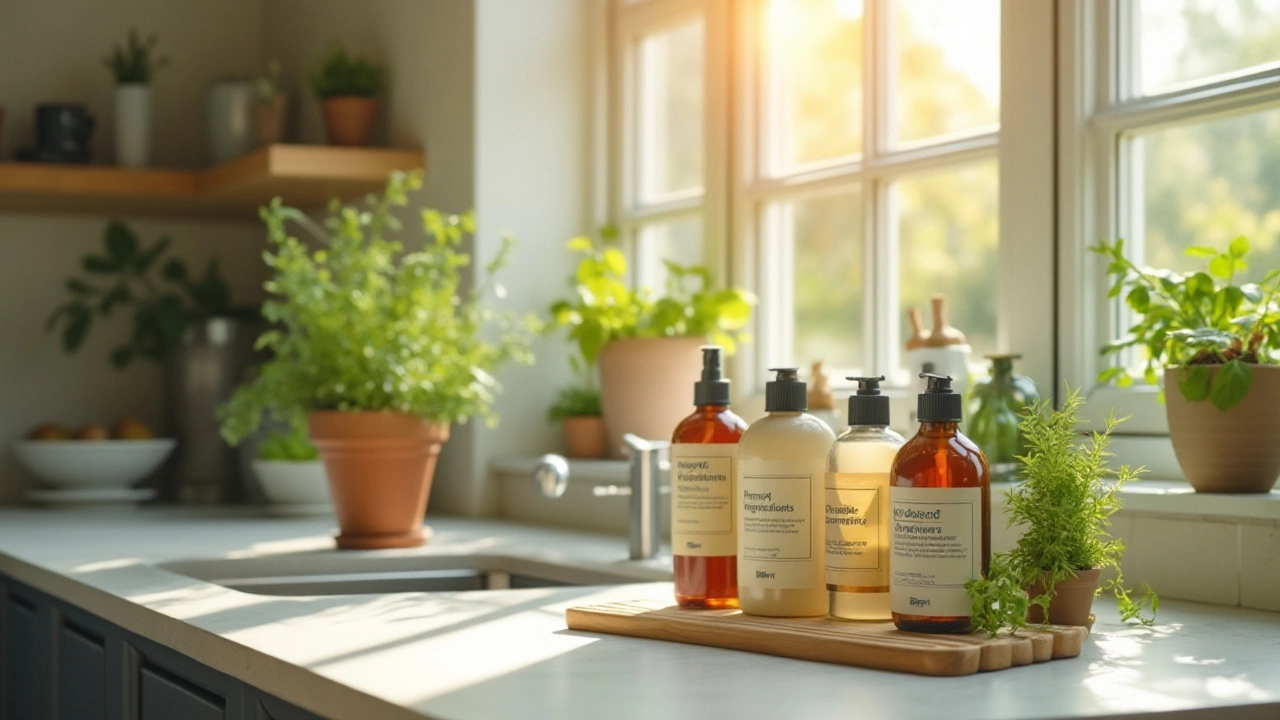All‑Purpose Cleaner: Your Everyday Cleaning Hero
Ever wish you had one bottle that could tackle the kitchen counter, bathroom tiles, and the living‑room table without a fuss? That’s the promise of an all‑purpose cleaner. It’s not magic, just the right mix of ingredients, a bit of know‑how, and a safe approach. In this guide we’ll show you what to look for, how to whip up a cheap DIY version, and the do‑and‑don’t for everyday use.
What Makes a Good All‑Purpose Cleaner
A solid all‑purpose cleaner does three things: cuts grease, lifts grime, and leaves a fresh scent without harming surfaces. Look for a product that lists water, a mild surfactant (like a plant‑based soap), and a natural solvent (vinegar or alcohol) near the top of the ingredient list. Avoid harsh chemicals such as ammonia, bleach, or chlorine if you have kids or pets at home.
Performance matters too. Test a spray on a hidden spot first. If the surface stays bright and no streaks appear after wiping, you’ve got a winner. Another quick check: does the cleaner work on both smooth surfaces (like laminate) and textured ones (like grout)? A versatile formula should handle both without washing away colour or sealant.
Finally, think about the scent. A light citrus or herbal fragrance is pleasant but not overpowering. Strong perfumes can irritate sensitive noses, especially in small bathrooms. Choose a scent you’ll enjoy hearing every time you spray.
DIY All‑Purpose Cleaner Recipes You Can Trust
Making your own cleaner saves money and lets you control every ingredient. Here are two simple recipes that cover most daily jobs.
1. Vinegar‑Based All‑Purpose Spray
- 1 cup white distilled vinegar
- 1 cup warm water
- 1 teaspoon liquid castile soap
- 10 drops lemon essential oil (optional)
Mix everything in a spray bottle, shake gently, and you’re set. Vinegar cuts grease and kills germs; the castile soap adds foaming power, while lemon oil masks the vinegar smell.
2. Alcohol‑Boosted Cleaner
- ½ cup isopropyl alcohol (70% or higher)
- ½ cup distilled water
- ½ teaspoon baking soda
- 5 drops tea‑tree oil (optional)
Combine, stir until the baking soda dissolves, and pour into a spray bottle. Alcohol evaporates fast, leaving surfaces streak‑free – perfect for glass, mirrors, and stainless steel.
Both recipes are safe on most sealed surfaces. Avoid using vinegar on natural stone (marble, granite) as the acid can etch the surface. For stone, stick to the alcohol‑based mix or a commercial stone‑safe cleaner.
Use a microfiber cloth for wiping; it traps dirt better than paper towels and reduces waste. Spray the cleaner onto the cloth—not directly onto the surface—if you’re working on electronics or wood furniture. This prevents excess liquid from seeping into seams.
When you’ve tried a few brands or recipes, you’ll quickly spot the ones that feel light, dry, and leave no residue. The goal is a clean that looks and feels fresh, not sticky or cloudy.
Need a quick refresher for high‑traffic spots? Keep a small spray bottle of the vinegar mix in the kitchen drawer and a bottle of the alcohol mix in the bathroom cabinet. A couple of sprays and a wipe is all it takes to keep grime at bay.
That’s the whole picture: know what to look for, try a DIY batch, and follow simple safety steps. With the right all‑purpose cleaner in hand, you’ll spend less time scrubbing and more time enjoying a tidy home.

The Best Eco-Friendly All-Purpose Cleaners for a Green Home
Finding an all-purpose cleaner that is both effective and environmentally friendly can be a challenge. Many traditional products contain harsh chemicals that are harmful to both the planet and our health. Fortunately, eco-conscious brands are creating cleaners with natural ingredients that are just as effective at tackling dirt and grime. This article explores some of the best eco-friendly all-purpose cleaners available, their benefits, and tips for choosing products that support a sustainable lifestyle.
Read More